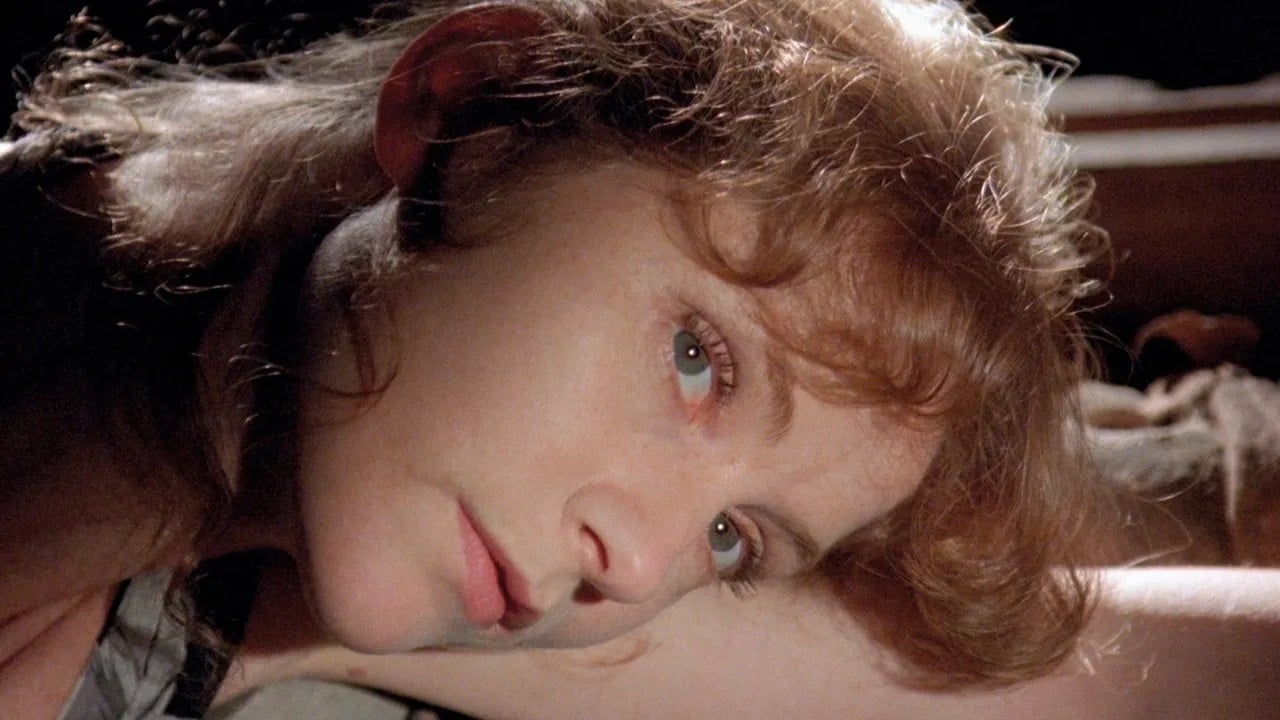

German director Werner Shroeter unfortunately never became as well known as other directors of his generation and origin (Fassbinder, Wenders, Herzog). I had the chance to discover him years ago and was truly impressed. It's hard for one to describe him. His films are strange, surreal, they are just too much! It's this kind my most favorite, that one I always seek It's as if John Waters, David Lynch or maybe Louis Bunuel dropped something from their uniqueness into Shroeter's mind and then he evolved it into something more special and personal! To all this, add the obsession of the director with opera and then we maybe can have a picture of his work. Anyway, about this film. This flick, "Malina", is a work of art. Isabelle Huppert is a great actress anyway. But, in this particular one, she overcomes herself. If the Oscar is the ultimate award to an actor then we are talking about an award winning performance. Unfortunately though - and this is a huge issue to be analyzed within a few sentences- there are plenty of times when these awards go to actors who don't deserve it. I think it would be fair to acknowledge productions outside and beyond the USA. Of course American independent cinema is amazingly worthy but sadly 80% of it is ignored by the Academy. I am going to rate this film with a nine though it doesn't need my rate. It's so extraordinary that it's above judgment.
... View More"Malina" is a German/Austrian co-production that resulted in a French/German-language film, but I believe the only French thing here is lead actress Isabelle Huppert and she spoke her parts in her native language and got dubbed by Lisa Kreuzer. This film is from 1991, so it has its 25th anniversary this year. It is possibly the most known work by director Werner Schroeter and the two Austrian writers, Ingeborg Bachmann and Elfriede Jelinek, are somewhat famous today too, at least here in Germany. The film was a huge success at the German Film Awards where it did not only take home the big prize, but also received trophies for directing, lead acting and editing. I cannot share the praise, however. While I occasionally liked Huppert's performance, I felt that overall the story as well as the minor characters were really not even close to being captivating enough for a two-hour film unfortunately. German film fans will see more familiar faces such as Peter Kern or Mathieu Carrière. But they did not sparkle my interest in this film either. Then again, I must say I am a bit biased here as I have seen Schroeter's most known works (5 years after his death) and I was very much underwhelmed by pretty much everything I saw. But I must also say that this one here is entirely different than his work with Montezuma for example and I guess this is also why it is more easily accessible for awards bodies as it received more outside the German Film Awards. But like I said, I cannot share the praise here and this film's success is just another piece of evidence for me that the 1990s started fairly weak for German cinema and the great films of reunited Germany followed years later, not yet so quickly. I give this one a thumbs-down. It dragged on several occasions and Huppert wasn't that good either, just not as bad as the rest about the film. Watch something else instead.
... View MoreMalina is incredibly complex drama on the nature of insanity and to watch it, especially in the beginning, is quite a labour. A woman believes that she is a writer and all her men are fruits of her ill consciousness or personages of her unwritten book or alter egos of her split imagination. And episode after episode her consciousness keeps deteriorating more and more but the end breaks everything once again so all that was happening comes up in absolutely different light and changes its meaning. Malina is an anagram of 'animal' and it isn't accidental but symbolic to the entire surrealistic content of the film. Malina is unique and utterly fabulous movie having many layers of narration and visualization.
... View More+: the last scene where she disappears into the wall is the only redeeming quality of this movie. it's amazingly beautiful.-: I've read the book, the screenplay and now I've approached the film. I see a clear line of delineation in the quality. Malina the book is a masterpiece, Malina the screenplay is more like reading over Jelinek's shoulder as she tries to read and interpret and add her own problems to Bachmann. And then this film? First of all, it's over intellectual to the point where it makes no difference what's going on, what's being shown, what's being said or how these are supposed to relate. There's reference stacked on top of nauseating reference -which can be OK, but here it adds up to nothing. The insertion of the Bachmann myth only makes it seem more like a novelty piece than a film that's really trying to say something. The pace of the film is awful, the messe en scene is uninventive and the performance, to my dismay, is flat. Another problem: she's 'crazy' from the very beginning. We see only one scene where she can hold her own, but that misses the whole point of both the book and the screen play: that the linguistic problem is at the root of the problem. It's hard to explain much more in such a small format, but I had to write this to warn anyone who also loved the book and decided to see the film version out of love. Approach it with curiosity, but don't expect much from this wanna be art film. Oh, and the whole flame thing? It's been done. Nice try trying to use a 'symbol' which expands upon nothing (other than the Bachmann myth).
... View More